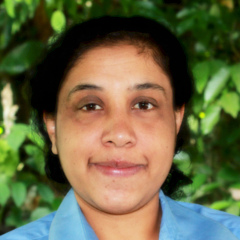ABC of Civil Services | Reservation does not dilute system of merit

Mail This Article
The Malayalam news portals last week were full of stories of Sreedhanya Suresh who will be posted as Assistant Collector of Kozhikode in a month’s time. Sreedhanya, who made headlines last year by becoming the first woman from the Scheduled Tribes in Kerala to clear the civil service examination before being the first person from Wayanad to get into the Indian Administrative Service (IAS), naturally attracts a lot of media attention. I was more interested to read the comments to each of these stories. Some people were praising her while a few others were sceptical about her credentials as she had benefitted from reservation. There was a passionate account urging people to forget her background and concentrate on her achievement. After going through all these write-ups, I was thinking about the larger situation.
Whenever someone from a lesser privileged background achieves something which is considered as monopoly of the entitled ones, the responses are always mixed; the congratulatory messages followed by the concerns. This applies to people from marginalised communities as well as women.
Prejudiced views
People believe that candidates who come under reservation categories have considerably lesser merit than the general candidates. In a patriarchal society like ours, this prejudice extends to women too though they do not have any special quota in the civil service examination. There is a fee waiver
for women candidates as an encouragement. But many believe that the women candidates are given more marks in interview.
These kinds of prejudices continue when the person joins the service after training too. The late Anna Rajam George, the first woman IAS officer, was not posted in a field job initially like her male batchmates. She had to fight for her right. The women officers of the Indian Police Service (IPS) have to face this problem more as policing involves a lot of physical activities. Though the training in the National Police Academy, Hyderabad, is exactly similar for male and female officers, people doubt the capacity of women in handling tougher situations. One senior lady IPS officer once told me about someone asking her whether she will be able to catch a thief who jumps into a river! Another person spoke of an inspector who took leave when she was posted as his superior. His unofficial reason was that he does not want to salute a woman!
So, think about a woman from a marginalised community who becomes successful in the civil service examination. The prejudices could be double-folded.
Sreedhanya herself narrated an incident.When she told that her optional was Malayalam, someone assumed that her English was not good and hence she wrote all papers in Malayalam! She replied in English with confidence that she wrote her papers in English only. Many top rankers from Kerala had Malayalam as their optional but none of them would have faced such a question.
Policy of social justice
The Union Public Service Commission follows a system of selection for civil service which has undergone a lot of changes over a period of time. The system of reservation is being followed as a
policy of social justice. The major aim here is to ensure wider representation. In a country where untouchability is still practiced, without the protective discrimination many could not even think of education and government employment. Even in a state like Kerala, where the social discrimination in access to public utilities is negligible, subtle ways of discrimination exist.
With my experience over 20 years in the civil service examination field, I could say that the reservation does not dilute the system of merit as the quality differences between categories of students are bare minimum. They are all products of systematic hard work who had faced different challenges to be successful. There could be personal differences in their performances in careers due to lot of factors. But being sceptical about the calibre of a person just because he/she comes from a disadvantaged background is baseless.
The irony is that the very people who talk about elevation of women and marginalised communities will be the largest critics of them. They could be silenced only with one’s continuous achievements. The successful people whom we regard as pioneers are the ones who proved their critics wrong. So, I wish all such officers who faced a lot of hardship a very fruitful career ahead. May you rise above all this negativity and prove your worth.
(The author is a former IPS officer and a trainer for civil service aspirants)


